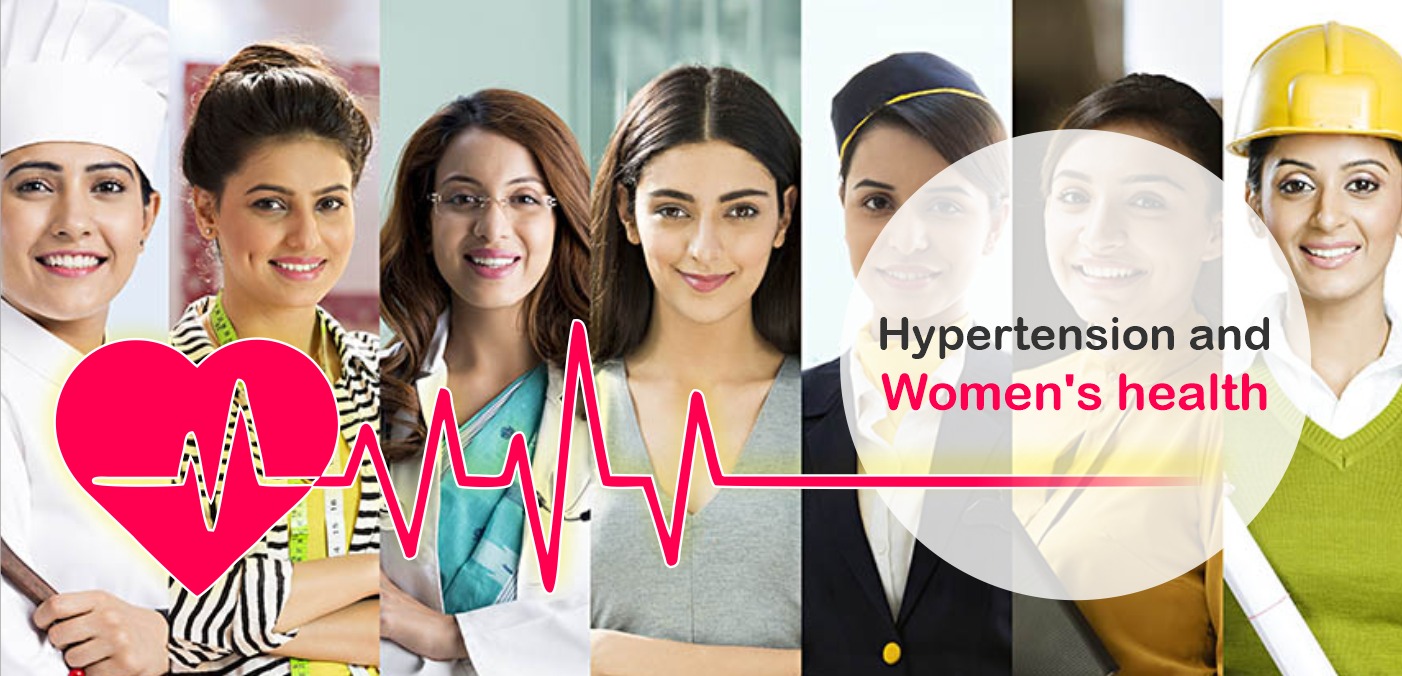

Hypertension, commonly known as high blood pressure, represents a significant risk factor for cardiovascular diseases on a global scale. In India, recent analysis underscores a concerning statistic: approximately 8.05% of women aged 15-49 years suffer from undiagnosed hypertension. Our Nanohealth research found that 14% of corporate women employees are hypertensive.
This condition carries profound implications for personal and reproductive health, as nearly half of these affected women remain unaware of their hypertensive status.
Various factors such as age, body mass index (BMI), educational attainment, religion, and geographic location contribute to the prevalence of undiagnosed hypertension among women in this demographic.
Defined by a blood pressure reading of 140/90 mmHg or higher, hypertension poses a serious health threat, particularly due to its asymptomatic nature. Individuals may not experience noticeable symptoms, making regular blood pressure monitoring imperative for early detection.
Risk factors for hypertension encompass a range of lifestyle and genetic elements, including
-Advancing age
-Genetic predisposition
-Obesity
-Sedentary habits
-Excessive salt intake, and
-Alcohol consumption.
Furthermore, women may encounter blood pressure fluctuations during pregnancy and post-menopause, highlighting the need for heightened awareness and proactive management among this demographic.
Although hypertension can manifest symptoms such as headaches, dizziness, chest discomfort, and visual disturbances, severe cases may precipitate alarming indicators like severe headaches, chest pain, breathing difficulties, and neurological symptoms.
Immediate medical attention is crucial for individuals experiencing extremely elevated blood pressure levels, typically registering at 180/120 mmHg or higher.Undoubtedly, untreated or poorly managed hypertension jeopardizes both health and overall quality of life, significantly elevating the risk of life-threatening complications such as heart attacks, strokes, kidney disease or failure, dementia, and vision impairment.
Effective management strategies for hypertension encompass lifestyle modifications and medical interventions. Lifestyle adjustments include
-Maintaining a healthy weight
-Adopting a balanced diet such as the DASH (Dietary Approaches to Stop Hypertension) regimen rich in fruits, vegetables, whole grains, and lean proteins while minimizing sodium intake and prioritizing potassium-rich foods.
-Regular physical activity, totaling at least 150 minutes per week,
-Reduced alcohol consumption and smoking cessation, further contributing to blood pressure control.
Despite lifestyle modifications, some individuals may require pharmacological interventions to effectively manage hypertension. Regular consultations with healthcare professionals are essential for ongoing assessment, risk evaluation, and treatment adjustments tailored to individual needs.
In conclusion, hypertension represents a significant public health challenge, particularly among women in India aged 15-49 years. Heightened awareness, proactive screening, and comprehensive management strategies are pivotal in mitigating the adverse health outcomes associated with undiagnosed or poorly controlled hypertension. Through a multifaceted approach encompassing lifestyle modifications, regular monitoring, andmedical interventions as needed, individuals can significantly reduce their risk of cardiovascular complications and optimize their long-term health outcomes.
HYPERTENSION CASE STUDIES
|
|
|
|
Patient Background/History |
Female, 29 years of age, H/o Headache episodes 1-2times/week. Taking NSAIDS for headache and body pains. On examination findings are remarkable for 140/101mm Hg |
|
Assurance - Recommendations |
Regular recommendations for Consultations and enrolment for Hypertension management Program |
|
Assurance – Care Coordination and Patient Journey |
Acting on the recommendations, the patient was nudged through health coaches to visit the Smart Clinic and take consultation from a specialist. The patient first refused to take the medicine or get any tests done. Through weekly nudges and counselling by the Doctor, the patient started taking medicine. Over 5 weeks the compliance has increased. |
|
Impact |
Remarkable control of Blood pressure. The patient also now feels much more energetic and has got sense of wellbeing. |
|
Impact Drivers |
Risk Stratification by the system, Recommendations generated based on risk, nudges by health coaches, and the provision of a smart clinic to provide convenient, trust and high value-based service. |
|
|
|
|
Assurance - Recommendations |
Regular recommendations for Consultations and enrolment for Hypertension management Program on 19th Feb 2021 |
|
Assurance – Care Coordination and Patient Journey |
Acting on the recommendations, the patient was nudged through health coaches to visit the Smart Clinic and take consultation from a specialist. The patient first refused to take the medicine or get any tests done. Through weekly nudges and counselling by the Doctor, the patient started taking medicine. Over 5 weeks the compliance has increased And the patient successfully maintained normal blood pressure levels under our recommendations, guidance and through coordinated care efforts.. |
|
Impact |
Remarkable control of Blood pressure. The patient also now feels much more energetic and has got sense of wellbeing. Eventually, the patient achieved the ability to maintain a healthy blood pressure independently. Additionally, comorbid conditions were effectively managed by maintaining normal cholesterol levels, normal TSH levels, and reversing pre-diabetes. |
|
Impact Drivers |
Risk Stratification by the system, Recommendations generated based on risk, nudges by health coaches, and the provision of a smart clinic to provide convenient, trust and high value-based service. |
Assurance by NanoHealth: Your Trusted Healthcare Provider
Achieving tangible results with medical interventions for health often involves a combination of strategic planning, consistency, and individualized approaches.
Remember, individual responses to lifestyle changes can vary. What works for one person may not work for another. Therefore, a personalized and evidence-based approach, guided by healthcare professionals, is essential for achieving positive outcomes in managing better health through medical interventions.
At Assurance by NanoHealth, our qualified medical professionals will provide a comprehensive solution to the specific challenges associated with health. We prioritize assisting you in getting better clinical outcomes.
Let our team guide you towards embracing the changes in your health with vitality and optimal well-being. Book your consultation now and embark on a journey towards better health! Call +91 9100444004 or visit our website www.nhassurance.com to get started.